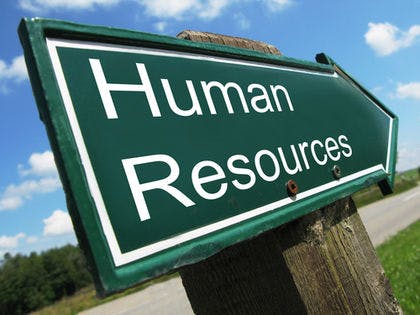HR is in a strange place when it comes to business.
It’s responsible for hiring the people who in turn build the company into what it is, but sometimes others don’t see it as “real work.” In fact, many companies are forgoing HR departments entirely, allocating these responsibilities to other departments and/or outsourcing certain processes to software.
But the data shows that HR has a big impact on business despite its poor reputation, and improving it will involve dedicating yourself to including it in your plans for the future, as well as involving them in the conversation about your overall business plans.
HR’s direct impact on business
If you still doubt that investing in HR will increase your profit margins, here’s some evidence. China Gorman, former CEO of and now strategic advisor to the Great Place to Work Institute, took stock of the Boston Consulting Group’s latest Creating People Advantage report:
BCG isolated the top 100 and bottom 100 companies based on financial performance and found that organizations stronger in people management have respectively higher financial performance than those organizations without strong people management. Among these high performers no HR subtopic was reported as in need of urgent action, which directly contrasts with the organizations with the worst financial performance, which reported need for urgent action across nearly all 27 HR sub-topics.”
What does this all mean? Well, it means that high-performing companies tend to have great HR departments, and, there’s a clear link between companies with a great HR strategy and those with a great business strategy.
HR’s PR issue
Even as much as HR can directly impact a business’ bottom line, there are still some misconceptions about the role of HR at many companies, as well as HR’s effectiveness in general. A 2015 Deloitte study reveals that only 30 percent of business leaders think HR has a reputation for sound business decisions, and only 20 percent feel HR can adequately plan for their company’s future talent needs.
This is all part of HR’s long-lived reputation as an incompetent department that’s generally useless. But as the BCG data reflects, a high-functioning HR department is crucial to a company’s financial success.
Still, reputations are hard to shake off, so people tend to think of HR as a part of their company they have to “deal with” instead of one that can help them. But whether or not you agree with the sentiment, you can’t deny HR has an impact on business, so it should behoove you to improve it.
Improving your HR
Acknowledging HR’s impact on business, you might ask yourself, “OK, so how can I improve my HR?” Like any of the good employees your HR department helps to manage, you need actionable goals to attain something concrete to work toward.
The irony here is that my suggestion doesn’t involve people, but technology. As tech continues to affect all aspects of business, it’s natural for HR to follow. Rather than using software to outsource HR, though, use it to automate and supplement HR.
After all, you still need someone to effectively lead and implement your new technology initiatives. Jonathan Sears, a regional practice leader in HR tech at professional services firm Towers Watson, advises that a cross-functional team will lead to the most successful implementation.
He says:
Don’t underestimate the importance of data, experience and domain expertise. There are hundreds of best practices out there, but what’s best for one organization might not be right for another.
If most of your implementation team members are newly minted MBA graduates, it’s likely they will propose canned best practices straight out of the training manual. But if your team comprises experienced professionals, the standard best practices likely will be only a starting point. You’ll also get a lot of information and data on peer organizations that will allow you to develop a unique solution that’s just right for your organization.”
Save them a seat
You need someone to marshal the team’s talents in order to make the most of your technology. In turn, your HR department needs the technology in order to make the most of their talents.
Above all else, you need to listen to the HR professionals themselves. What do they need to grow, both long-term and right this second? Start a conversation with your HR professionals, about their needs, what they can do to help other parts of your business, and what your plan for them within your business is.
HR is an integral aspect of your business, so make sure you save them a seat at your table.
